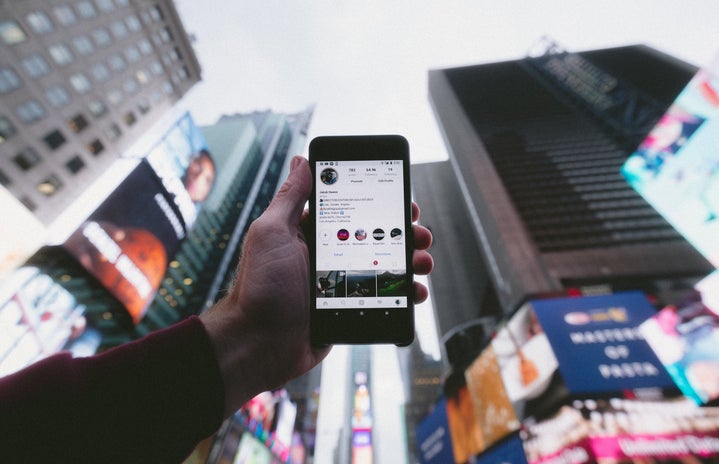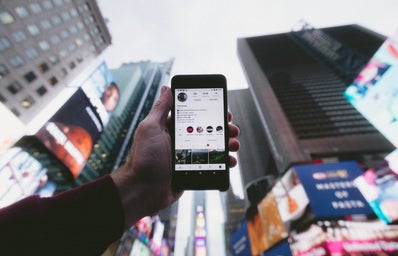Social media. We all know what it is. We all have it. In the world that we live in, having a social media account (or multiple) is inevitable.
Social media is a way to connect with others, especially during a time when seeing others is virtually impossible. It’s a way to explore interests or practice skills. There’s a YouTube video or an Instagram page for pretty much everything. Just last week, I used a YouTube video to teach the kid I babysit how to make an origami Minecraft character.
But despite all the wonders that social media may offer, it also has its drawbacks. It’s easy to use social media as a way to compare ourselves to others and to develop paranoia about how people perceive us.
That being said, social media doesn’t have to be toxic. There’s a way to control it and to ensure that the social media you have is a safe space to explore and learn. There are millions of ways to do this, but here are three easy tips that have helped me the most.
- Unfollow the people that make you unhappy
-
It’s that easy. Over the years I have followed people because we went to the same school or met at a gathering once, but after a while, looking at their profiles started to make me upset or insecure for various reasons. Each time they posted something new, I would make a verbal noise of disgust and then scroll past. If you can relate, UNFOLLOW! There was no reason to give them space in my feed when all they did was ruin my time on the app. Now the only people in my feed are people who make me happy.
- Block words and people that make you upset
-
On Twitter, you can block specific words related to subjects that perhaps trigger you or make you uncomfortable. This limits the associated content from your feed. Similarly, on YouTube, there is a feature to tell the website that you are uninterested in certain content. Your suggested videos will then be tailored to fit your interests more. Not only is your content altered to be topics that you want to see, but the programming of the website or app will better understand what you don’t want to see. The more you tell these apps what you like and don’t like, the less likely it’ll be to come across content that makes you unhappy.
- Don’t focus on “perfecting” your profile
-
Allow yourself to enjoy the app for what it is. When I first got Instagram, I wanted to post pictures that got hundreds of likes and get as many followers as I possibly could. I posted less of what I wanted to see and more of what I thought others would want to see. Now that I’ve learned to stop obsessing over every detail in my posts, I post pictures of cool experiences or moments I want to remember. Who cares if it doesn’t go viral overnight? I have learned to permit Instagram to be a fun space to scroll through dog videos and art pages, rather than focusing on numbers. Because I’ve trained myself to think this way, I have allowed social media to be what it was designed to be rather than an indicator of self-worth based on popularity.
Social media was developed as a way to network and share ideas, not to be a place of insecurity and judgment. And while we can’t stop social media from developing and changing, we can prevent it from becoming harmful and ruining our lives.



